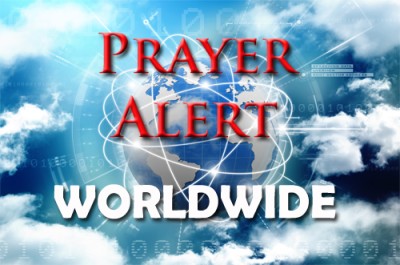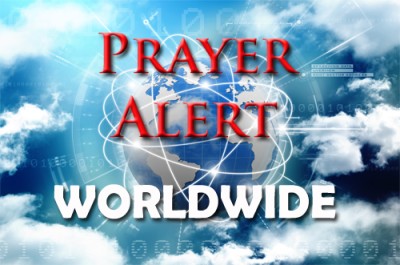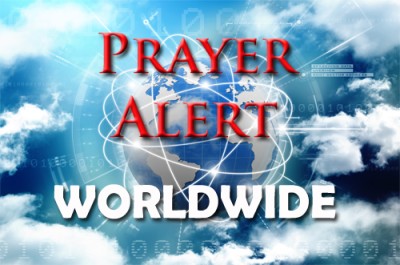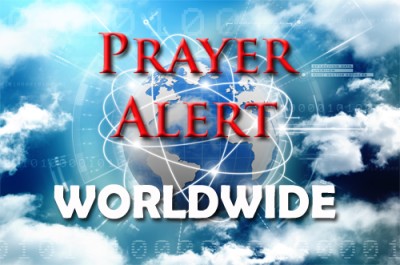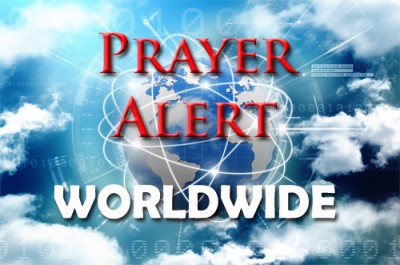Global: different Easter food traditions
17 Apr 2025Easter food traditions beautifully reflect regional heritage and faith across the world. In central and eastern Europe, the celebrations might include Paska bread, a braided loaf often paired with sweet cheese, jam, or savoury sides like ham. In France and Britain, Easter dinner often features a roast leg of lamb - maybe seasoned with Dijon mustard, rosemary, parsley, and capers. Scandinavian countries serve salmon (baked, smoked, or cured), whereas in the USA glazed ham holds pride of place. Italy’s ‘stuffed pizza’, a savoury pie filled with cheese and meats, dates from the Middle Ages; a traditional side dish might be crispy stuffed artichokes filled with breadcrumbs, garlic, cheese, and herbs. Greek tables feature baklava - filo pastry layered with nuts and honeyed cinnamon syrup - for an indulgent rich finish to the meal. Together, these dishes express celebration, gratitude for the joyful message of Easter, and deep cultural faith.
A US federal judge may hold the Trump administration in contempt for defying a court order which temporarily halted deportation flights carrying over 200 individuals to El Salvador. The administration had invoked the 1798 Alien Enemies Act, typically reserved for wartime powers, to justify the removals. James Boasberg criticised their ‘wilful disregard’ of his ruling, saying their responses were unsatisfactory. Though the Supreme Court later affirmed Trump’s decision, Boasberg insists that does not excuse the violation of his earlier temporary restraining order. If the administration does not provide the information he has requested by 23 April, he will seek to identify the individuals who ignored the order to stop the deportations. Trump officials deny wrongdoing, asserting that the individuals deported were gang members and the flights had departed before the court's intervention: Trump has also called Boasberg a ‘troublemaker and agitator’. El Salvador agreed to take in the deportees in exchange for $6 million in aid: Trump has expressed an interest in sending more deportation flights there.
Days after its leader Tundu Lissu was arrested and charged with treason, Tanzania’s opposition party CHADEMA has been disqualified from this year’s elections. The electoral commission claims it failed to sign an election code of conduct, rendering it ineligible for the October presidential and parliamentary polls. Lissu, who survived being shot sixteen times in 2017, was elected as party president in January. He is accused of calling on the public to launch a rebellion and disrupt the election. CHADEMA had already threatened to boycott the elections unless significant reforms are made to an electoral process it says favours the ruling party: the party’s chief attorney has said, ‘No reforms, no elections’. Human rights campaigners have accused the government of an intensifying crackdown on political opponents, citing a string of unexplained abductions and killings. Serious questions persist about the state of democracy and civil rights in Tanzania.
The Safe Motherhood Programme, which has drastically reduced maternal and neonatal mortality in Nepal, is at risk due to severe funding shortages. Rs 380 million (£2 million) is urgently needed to reimburse hospitals and continue essential services. An additional Rs 600 million (£3.3 million) will be needed this fiscal year to sustain operations. Launched two decades ago, the programme offers free delivery services, antenatal checkup incentives, and transportation allowances. It helped raise institutional deliveries from 18% to 80% and cut the maternal mortality rate from 539 per 100,000 live births in 1996 to 239 by 2016. However, nearly 130 maternal deaths have already occurred in the current fiscal year. The WHO has warned that progress toward the goal of reducing maternal mortality to 75 per 100,000 by 2030 could stall without immediate investment. The report stresses that broader efforts, like ensuring girls’ education, improving family planning, and tackling health inequalities, are crucial to safeguarding maternal and newborn lives.
Former president Ollanta Humala and his wife, Nadine Heredia, have been sentenced to fifteen years in prison for laundering $3 million from Brazilian firm Odebrecht and $200,000 from Venezuela’s former president Hugo Chavez. Humala, who served from 2011 to 2016, was taken into custody immediately after the verdict. Heredia sought asylum at the Brazilian embassy and was granted safe passage to Brazil with her youngest son. The trial, which spanned three years, centred on illegal funding for Humala’s 2011 campaign. Prosecutors allege the funds were funnelled through his Nationalist Party to defeat rival Keiko Fujimori. He is expected to serve his sentence at a facility built for former presidents; Alejandro Toledo and Pedro Castillo are also detained there. Former president Alan Garcia killed himself in 2019 as police arrived at his home to arrest him for alleged corruption. Odebrecht has admitted to paying $788 million in bribes worldwide to secure government contracts.
New research suggests a 'quiet revival' may be underway in the UK, with church attendance rising significantly - particularly among Generation Z. A study commissioned by the Bible Society found that 12% of UK adults now attend church at least once a month, up from 8% in 2018. The biggest increase was among 18- to 24-year-old men, rising from 4% to over 20%, with similar growth seen among young women. One-third of Gen Z non-attenders said they would go to church if invited by a friend. The report also highlights increasing diversity within UK churches, with ethnic minorities now accounting for one in five regular attenders. Churchgoers were also found to report higher life satisfaction, lower anxiety, and stronger community engagement. Paul Williams, CEO of the Bible Society, said the findings challenge the narrative of church decline, revealing instead that the Church in England and Wales is growing and offering real hope. Pentecostal and Roman Catholic congregations showed especially strong growth during the study period.
A quiet yet courageous resistance is growing among evangelical leaders in Russia who are risking their freedom to oppose the war in Ukraine. Bishop Albert Ratkin, pastor of Word of Life Church near Moscow, has been labelled a 'foreign agent' by the Kremlin and has had his church raided. Despite the risks, Ratkin continues to speak publicly against the war, declaring that Christians must not support violence. Other pastors, such as Nikolay Romanyuk and Yuri Sipko, have faced imprisonment, persecution, or have fled the country entirely. Romanyuk is currently facing prison for urging Christians not to enlist, while Sipko fled to Germany after authorities called his sermons 'enemy propaganda’. Pastor Andre Furmanov helps church members obtain military exemptions but avoids public protests to avoid jeopardizing lives. These men represent a small group of faithful believers whose conscience, shaped by the gospel, compels them to stand for peace and truth. Despite repression and persecution, they remain committed to proclaiming Christ’s message of love and justice.
